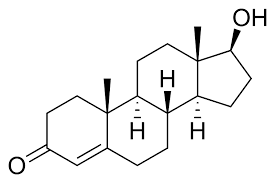On Testosterone and Civilization
Essay 3 of 17 in the Health Series: “The Body as Civilization”
“No man is free who is not master of himself.” - Epictetus
As a father and an aging man myself I have watched men age not by years but by surrender. Strength fades first, then certainty, then initiative. What disappears isn’t only muscle, it’s direction. The chemistry of will drains out of them; they become comfortable, compliant, chemically at peace. Th…



